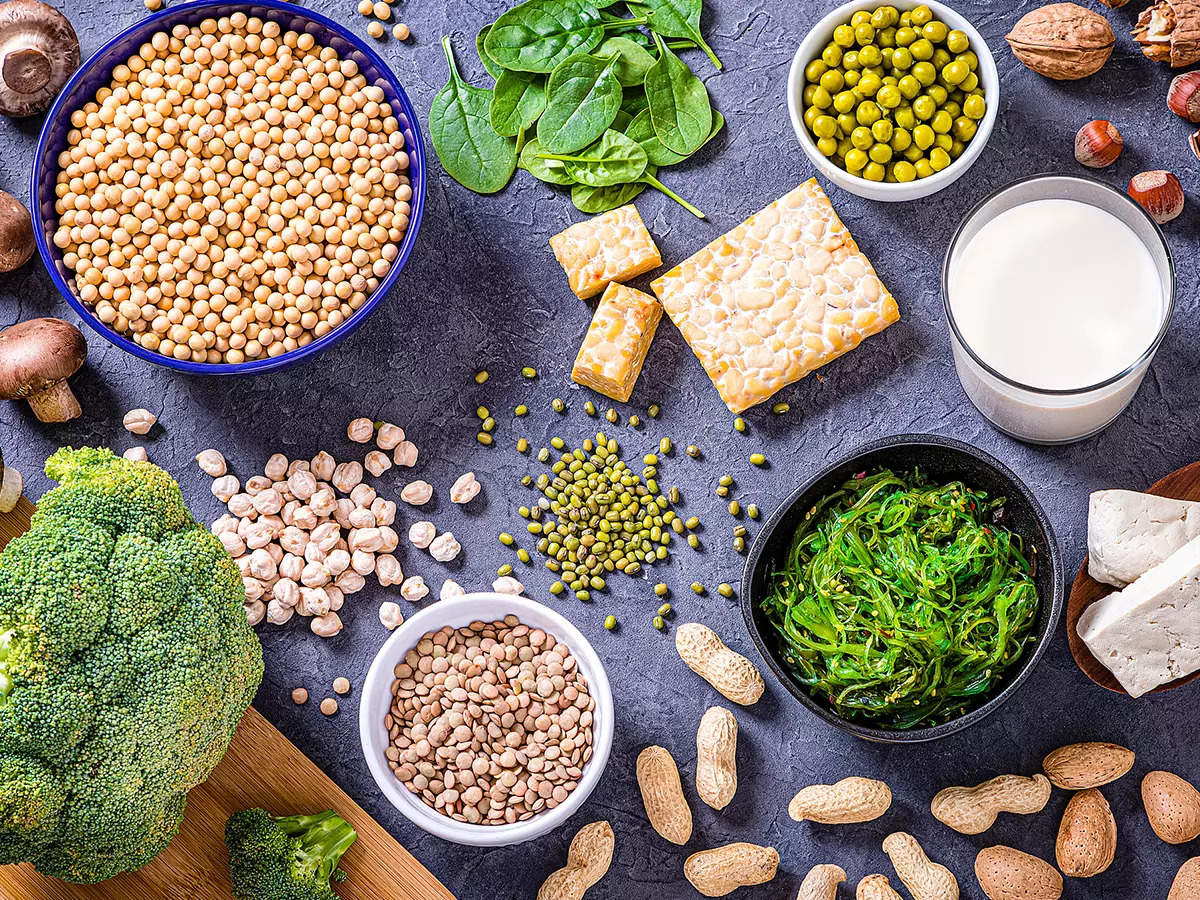The benefits of Plant Based Lifestyle and diets are numerous, including improved health, better weight management, and a reduced carbon footprint.
The world is currently undergoing a green revolution, and the movement towards plant-based living is at its forefront. If you are someone who is considering embracing this lifestyle, then you are in the right place. In this blog post, we will be discussing everything you need to know about starting your journey towards a Plant Based Lifestyle. From understanding the basics of plant-based diets and the benefits they offer, to learning how to make simple changes in your daily routine, this guide will help you embrace the green revolution and start living a healthier, happier, and more sustainable life.
Introduction: Explaining the concept of a Plant Based Lifestyle
In recent years, there has been a significant shift in the way people perceive their health and the impact of their choices on the planet. As more individuals become aware of the detrimental effects of animal agriculture on the environment and the potential health benefits of a plant-based diet, the popularity of embracing a Plant Based Lifestyle has soared.
But what exactly does it mean to adopt a Plant Based Lifestyle? At its core, it is a way of living that prioritizes plant-derived foods while minimizing or eliminating the consumption of animal products. This includes not only meat but also dairy, eggs, and other animal-derived ingredients.
The concept of a Plant Based Lifestyle goes beyond just the food we consume. It encompasses a holistic approach to wellness, considering the ethical and environmental aspects as well. It is about making conscious choices that align with our values of compassion, sustainability, and overall well-being.
By embracing a Plant Based Lifestyle, you are not only taking steps towards improving your health but also contributing to the preservation of our planet. Plant-based diets have been linked to numerous health benefits, including lower risks of heart disease, obesity, type 2 diabetes, and certain types of cancer. Additionally, reducing our reliance on animal agriculture can help combat deforestation, reduce greenhouse gas emissions, and conserve water resources.
In this blog series, we will explore the many facets of a Plant Based Lifestyle, providing practical tips, delicious recipes, and insightful information to help you embark on your journey towards a greener, healthier, and more compassionate way of living. Together, let’s embrace the green revolution and make a positive impact on our lives and the world around us.
The benefits of a Plant Based Lifestyle: Health, environmental, and ethical considerations
Embracing a Plant Based Lifestyle can bring about numerous benefits that extend beyond personal health. Not only does it have a positive impact on our own well-being, but it also contributes to mitigating environmental issues and aligning with ethical considerations.
First and foremost, adopting a plant-based diet can significantly improve our overall health. A diet rich in fruits, vegetables, whole grains, legumes, and nuts provides essential nutrients, vitamins, and minerals that support our immune system, lower the risk of chronic diseases such as heart disease and diabetes, and promote a healthy weight. Plant-based diets are often associated with lower cholesterol levels, reduced blood pressure, and better digestion, leading to increased energy levels and overall vitality.
In addition to personal health benefits, choosing a Plant Based Lifestyle can have a profound positive impact on the environment. Animal agriculture is a major contributor to greenhouse gas emissions, deforestation, and water pollution. By reducing or eliminating animal product consumption, we can help combat climate change, conserve precious natural resources, and preserve biodiversity. Plant-based diets require less land, water, and energy compared to conventional meat and dairy production, making them a sustainable choice for the planet.
Ethical considerations also play a significant role in embracing a Plant Based Lifestyle. Many individuals choose to adopt this lifestyle due to concerns about animal welfare. Factory farming practices often involve confinement, overcrowding, and the use of hormones and antibiotics, which can lead to unnecessary suffering for animals. By shifting towards plant-based alternatives, we can contribute to a more compassionate and humane treatment of animals.
In summary, the benefits of a Plant Based Lifestyle extend beyond personal health. By choosing to embrace this green revolution, we can positively impact our own well-being, reduce our carbon footprint, and align with ethical values that prioritize the welfare of animals. It’s a journey that not only benefits ourselves but also the planet we call home.
Controvert common myths and misconceptions about plant-based diets
There are many myths and misconceptions surrounding plant-based diets, often leading to skepticism or resistance towards embracing this lifestyle. However, it’s important to debunk these myths and shed light on the realities of a plant-based diet.
One common myth is that plant-based diets lack essential nutrients. This couldn’t be further from the truth. A well-planned plant-based diet can provide all the necessary nutrients, including protein, iron, calcium, and omega-3 fatty acids. Plant-based protein sources such as legumes, tofu, Tempeh (A traditional Indonesian food made from fermented soybeans), and quinoa are rich in amino acids and can easily meet daily protein requirements. Leafy greens, fortified plant milks, and nuts are excellent sources of calcium, while iron can be obtained from sources like lentils, spinach, and fortified cereals. Additionally, incorporating flaxseeds, chia seeds, and walnuts into your diet can fulfill your omega-3 needs.
Another misconception is that plant-based diets are boring and lack variety. On the contrary, plant-based diets offer a wide array of flavors, textures, and cuisines. With countless fruits, vegetables, grains, legumes, herbs, and spices available, there are endless possibilities for creating delicious and diverse meals. From hearty salads to flavorful stir-fries and comforting soups, plant-based eating can be both exciting and satisfying.

Some may argue that plant-based diets are expensive. While it’s true that certain plant-based products can be pricey, a plant-based diet can also be very budget-friendly. Staples such as rice, beans, lentils, and seasonal produce are often affordable and readily available. By purchasing whole foods and cooking from scratch, you can save money and still enjoy a nutritious plant-based diet.
Lastly, there is a misconception that plant-based diets lack protein and are not suitable for athletes or those looking to build muscle. However, numerous athletes and bodybuilders have successfully thrived on plant-based diets, proving that plant-based protein sources can be just as effective in supporting muscle growth and athletic performance. Plant-based protein powders, such as pea protein or hemp protein, can also be incorporated into smoothies or recipes to supplement protein intake.
By debunking these myths and misconceptions, it becomes clear that a Plant Based Lifestyle is not only nutritionally adequate but also diverse, affordable, and suitable for individuals with varying lifestyles and goals. Embracing the green revolution and transitioning to a plant-based diet can be a positive step towards improving both personal health and the well-being of the planet.
Getting started: Tips for transitioning to a Plant Based Lifestyle
Transitioning to a Plant Based Lifestyle can be an exciting and fulfilling journey. However, it’s important to approach it with the right mindset and a well-thought-out plan. Here are some tips to help you get started on your path to a Plant Based Lifestyle:
Educate yourself:
Before diving into a Plant Based Lifestyle, take the time to educate yourself about the benefits and potential challenges. Read books, watch documentaries, and explore reliable online resources to learn about the health benefits, environmental impact, and ethical considerations associated with plant-based living. This knowledge will not only motivate you but also equip you with the information needed to make informed choices.
Start slow:
Transitioning to a Plant Based Lifestyle does not have to happen overnight. It’s perfectly fine to take gradual steps towards your goal. Consider starting with Meatless Mondays or committing to one plant-based meal per day. As you become more comfortable and confident with plant-based cooking and eating, you can gradually increase the number of plant-based meals in your diet.
Explore plant-based alternatives:
One of the keys to a successful transition is finding plant-based alternatives for your favorite animal-based foods. There is a wide range of plant-based products available today, such as plant-based milk, meat substitutes, and vegan cheeses. Experiment with different brands and flavors to find the ones that suit your taste buds and dietary preferences.
Focus on whole foods:

While plant-based alternatives can be convenient and tasty, it’s essential to prioritize whole, unprocessed foods in your diet. Load up on fruits, vegetables, whole grains, legumes, nuts, and seeds. These nutrient-dense foods will provide you with the essential vitamins, minerals, fiber, and antioxidants your body needs to thrive.
Get creative in the kitchen:

Embrace the opportunity to explore new flavors, cuisines, and cooking techniques. Look for plant-based recipes online or invest in a plant-based cookbook to inspire your culinary adventures. Experiment with different herbs, spices, and seasonings to enhance the taste and variety of your plant-based meals.
Find support:
Surround yourself with like-minded individuals who are also on a plant-based journey. Join online communities, attend local meetups, or participate in cooking classes or workshops focused on plant-based living. Sharing experiences, recipes, and challenges with others can provide valuable support and motivation.
Remember, transitioning to a Plant Based Lifestyle is a personal journey, and everyone’s approach may be different. Listen to your body, be patient with yourself, and celebrate your progress along the way. Embracing a Plant Based Lifestyle not only benefits your health but also contributes to a more sustainable and compassionate world.
Understanding macro-nutrients and ensuring a balanced plant-based diet

When transitioning to a Plant Based Lifestyle, it’s crucial to understand macro-nutrients and how to maintain a balanced diet. Macro-nutrients, which include carbohydrates, proteins, and fats, are the building blocks of our nutrition and play a vital role in our overall health and well-being.
Carbohydrates, often misunderstood, are an essential energy source in a plant-based diet. Whole grains, legumes, fruits, and vegetables are excellent sources of complex carbohydrates that provide sustained energy and essential fiber. These complex carbs fuel our bodies, support digestion, and help regulate blood sugar levels.
Proteins, often associated with animal products, can also be found abundantly in plant-based sources. Legumes, tofu, temped, quinoa, and nuts are just a few examples of plant-based protein powerhouses. Combining different plant protein sources throughout the day ensures a complete amino acid profile, providing the body with all the essential building blocks it needs.
Fats, another important macro-nutrient, are essential for many bodily functions and should not be feared. Opt for healthy plant-based fats such as avocados, nuts, seeds, and olive oil. These fats are rich in omega-3 fatty acids, which contribute to heart health and overall well-being.
Watch it – Beginners Guide to Sustainable Living
Maintaining a balanced plant-based diet means incorporating a variety of foods to meet your nutrient needs. Focus on consuming a rainbow of fruits and vegetables to ensure you’re getting a wide range of vitamins, minerals, and antioxidants. Additionally, incorporating whole grains, legumes, and plant-based proteins into your meals will provide the necessary nutrients for optimal health.
Remember, embracing a Plant Based Lifestyle is not about deprivation or restriction; it’s about nourishing your body with wholesome, sustainable foods. By understanding macro-nutrients and creating a well-rounded meal plan, you can thrive on a plant-based diet and enjoy all the benefits it brings to your health and the environment.
Exploring plant-based protein sources and alternative options
When transitioning to a Plant Based Lifestyle, one of the key considerations is finding suitable protein sources. Many people worry that they will be lacking in protein when eliminating animal products from their diet, but rest assured, there are plenty of plant-based protein options available.
One of the most popular plant-based protein sources is legumes. These include beans, lentils, chickpeas, and peas. Legumes are not only rich in protein but also high in fiber and other essential nutrients. They can be incorporated into a variety of dishes, from hearty stews to flavorful salads.
Another excellent plant-based protein option is tofu and Tempeh (A traditional Indonesian food made from fermented soybeans). Made from soybeans, these versatile ingredients can be marinated, grilled, or stir-fried to create delicious and protein-packed meals. Tofu and Tempeh (A traditional Indonesian food made from fermented soybeans) absorb flavors well, making them a great addition to stir-fries, sandwiches, and even desserts.
Nuts and seeds are also fantastic sources of plant-based protein. Almonds, walnuts, chia seeds, and hemp seeds are all great options. Not only do they provide protein, but they also contain healthy fats and essential minerals. Sprinkle them on top of salads, blend them into smoothies, or use them as a base for homemade energy bars.
Quinoa, a pseudo-cereal, is another plant-based protein powerhouse. This grain-like seed is not only high in protein but also packed with fiber and other nutrients. It can be used as a base for salads, mixed into soups, or even used as a substitute for rice or pasta in various dishes.
Lastly, don’t forget about plant-based meat alternatives. With advancements in food technology, there is now a wide range of plant-based burgers, sausages, and even chicken substitutes available. These alternatives are often made from ingredients such as soy, wheat, or peas and offer a similar texture and taste to traditional meat products.
By exploring these plant-based protein sources and alternative options, you can ensure that your journey to a Plant Based Lifestyle is both nutritious and delicious. Embracing the green revolution has never been easier, and with these protein-rich choices, you’ll be well on your way to a healthier and more sustainable way of living.
Embracing diversity: The wide range of delicious plant-based foods available
Embracing a Plant Based Lifestyle doesn’t mean sacrificing taste or variety in your diet. In fact, one of the most exciting aspects of this green revolution is the wide range of delicious plant-based foods available to explore and savor.
Gone are the days when a plant-based diet consisted solely of salads and steamed vegetables. Today, there is an incredible diversity of plant-based options that cater to different tastes, preferences, and cultural backgrounds. From hearty and flavorful plant-based proteins like tofu, Tempeh (A traditional Indonesian food made from fermented soybeans), and seitan, to an array of legumes, grains, and nuts that provide essential nutrients and textures, the possibilities are endless.
For those who crave the taste and texture of meat, the market is flooded with innovative plant-based alternatives that are remarkably similar in flavor and mouthfeel. Juicy plant-based burgers, sausages, and even “chicken” nuggets are now available, satisfying the cravings of even the most dedicated carnivores.
In addition to these protein sources, there is a vibrant world of fruits and vegetables waiting to be explored. Exotic fruits like dragon fruit, jack-fruit, and papaya offer a burst of tropical flavors, while vibrant vegetables like purple cauliflower, rainbow chard, and heirloom tomatoes add a pop of color to your plate.
Furthermore, the rise of plant-based cuisine has led to a creative explosion in the culinary world. Chefs and food entrepreneurs are constantly coming up with innovative plant-based dishes that showcase the versatility and deliciousness of plant-based ingredients. From plant-based sushi rolls to dairy-free ice creams made from cashews or coconut, these creations will surprise and delight your taste buds.
Whether you are a foodie looking to expand your culinary horizons or simply seeking a healthier and more sustainable way of eating, the wide range of delicious plant-based foods available ensures that your journey towards a Plant Based Lifestyle is anything but boring. So, embrace the diversity, try new flavors, and open your palate to the exciting world of plant-based cuisine. Your taste buds and the planet will thank you.
Navigating social situations and dining out as a plant-based eater
Navigating social situations and dining out can sometimes be a challenge when you embrace a Plant Based Lifestyle. However, with a little bit of planning and knowledge, you can confidently enjoy social gatherings and dining experiences while staying true to your plant-based choices.
Firstly, it’s important to communicate your dietary preferences to your friends, family, and colleagues. Let them know about your Plant Based Lifestyle and what it entails. This will help them understand your choices and make accommodations when planning meals or outings.
When dining out, it’s helpful to research restaurants beforehand. Look for establishments that offer plant-based options or have a vegetarian or vegan menu. Many restaurants nowadays are becoming more aware of dietary preferences and are catering to the growing demand for plant-based meals. Websites and apps like Happy-cow can be valuable resources to find plant-based-friendly establishments in your area.
If you find yourself in a situation where there aren’t many plant-based options available, don’t be afraid to ask for modifications or substitutions. Most restaurants are willing to accommodate dietary needs if you communicate your preferences politely. For example, you can ask for a dish without animal products or request additional vegetables instead of meat or dairy.
Another great tip is to offer to bring a plant-based dish to social gatherings or potlucks. This way, you can ensure that there will be something delicious and nutritious for you to enjoy, and you may even inspire others to try plant-based options.
Remember, navigating social situations and dining out as a plant-based eater is all about being prepared, communicating your needs, and being open to creative solutions. With a positive mindset and a bit of flexibility, you can embrace your Plant Based Lifestyle while still enjoying the company of others and exploring a variety of culinary experiences.
Overcoming challenges and staying motivated on your plant-based journey
Embarking on a plant-based journey can be a transformative experience for both your health and the environment. However, it’s important to acknowledge that challenges may arise along the way. From cravings for old favorite foods to social situations where plant-based options may be limited, staying motivated can sometimes be tough. But fear not, because with the right mindset and strategies, you can overcome these obstacles and stay on track with your Plant Based Lifestyle.
One effective way to stay motivated is to remind yourself of the reasons why you chose to embrace a plant-based diet in the first place. Whether it’s for ethical reasons, improving your health, or reducing your carbon footprint, keeping these motivations at the forefront of your mind can provide a sense of purpose and determination.
Another helpful strategy is to surround yourself with a supportive community. Connect with like-minded individuals who share your passion for plant-based living. Join online groups, attend local meetups, or even start your own plant-based club. These communities can provide a sense of camaraderie, offer valuable tips and advice, and serve as a source of inspiration when facing challenges.
Additionally, it’s important to be prepared and equipped with knowledge. Educate yourself about the benefits of a plant-based diet, learn new recipes, and experiment with different ingredients and cooking techniques. By expanding your culinary repertoire and discovering delicious plant-based alternatives, you’ll be less likely to feel deprived and more motivated to continue on your journey.
Lastly, be kind to yourself. Remember that transitioning to a Plant Based Lifestyle is a process, and it’s okay to have occasional slip-ups. Instead of dwelling on setbacks, focus on the progress you’ve made and use any setbacks as learning opportunities. Celebrate your successes, no matter how small, and acknowledge the positive impact you’re making on your health and the planet.
By overcoming challenges and staying motivated, you can fully embrace the green revolution and continue to thrive on your plant-based journey. With each step you take, you contribute to a more sustainable future and inspire others to join you on this transformative path.
Conclusion: Encouragement to embrace the green revolution and enjoy the benefits of a Plant Based Lifestyle
In conclusion, embracing the green revolution and transitioning to a Plant Based Lifestyle can bring numerous benefits to both our personal well-being and the health of our planet. By making conscious choices to incorporate more plant-based foods into our diets, we can significantly reduce our carbon footprint, contribute to the preservation of natural resources, and improve animal welfare.
Not only does a Plant Based Lifestyle have positive environmental impacts, but it also offers a myriad of health benefits. Plant-based diets are known to be rich in essential nutrients, vitamins, and minerals, while being low in saturated fats and cholesterol. Research has shown that adopting a Plant Based Lifestyle can help lower the risk of chronic diseases such as heart disease, diabetes, and certain types of cancer.
Moreover, a Plant Based Lifestyle opens up a whole new world of culinary possibilities. With an abundance of delicious and nutritious plant-based recipes available, you can explore a variety of flavors, textures, and cuisines. From vibrant salads to hearty grain bowls, and from flavorful plant-based proteins to indulgent desserts, you’ll never run out of options to tantalize your taste buds.
Embracing the green revolution is not about depriving ourselves or sacrificing taste; it’s about making mindful choices that align with our values and contribute to a healthier and more sustainable future. So why not take the first step today? Start by gradually incorporating more plant-based meals into your routine, exploring new ingredients, and discovering the joy of nourishing your body with wholesome plant-based foods.
Together, let’s embrace the green revolution and embark on this transformative journey towards a Plant Based Lifestyle. By doing so, we can create a positive impact on our health, the environment, and the well-being of future generations. Remember, every small change matters, and the power to make a difference lies within each of us. So let’s celebrate the beauty and abundance of nature and savor the incredible benefits of a Plant Based Lifestyle.
We hope you found our blog post on embracing the green revolution and beginning your journey to a Plant Based Lifestyle inspiring and informative. Switching to a Plant Based Lifestyle not only benefits your health but also contributes to a more sustainable and eco-friendly world. By following the steps outlined in this article, you can start incorporating more plant-based foods into your diet and experience the countless benefits it brings. Let us know how your journey goes and remember, every small change makes a big difference in creating a greener future for all.
——————————




